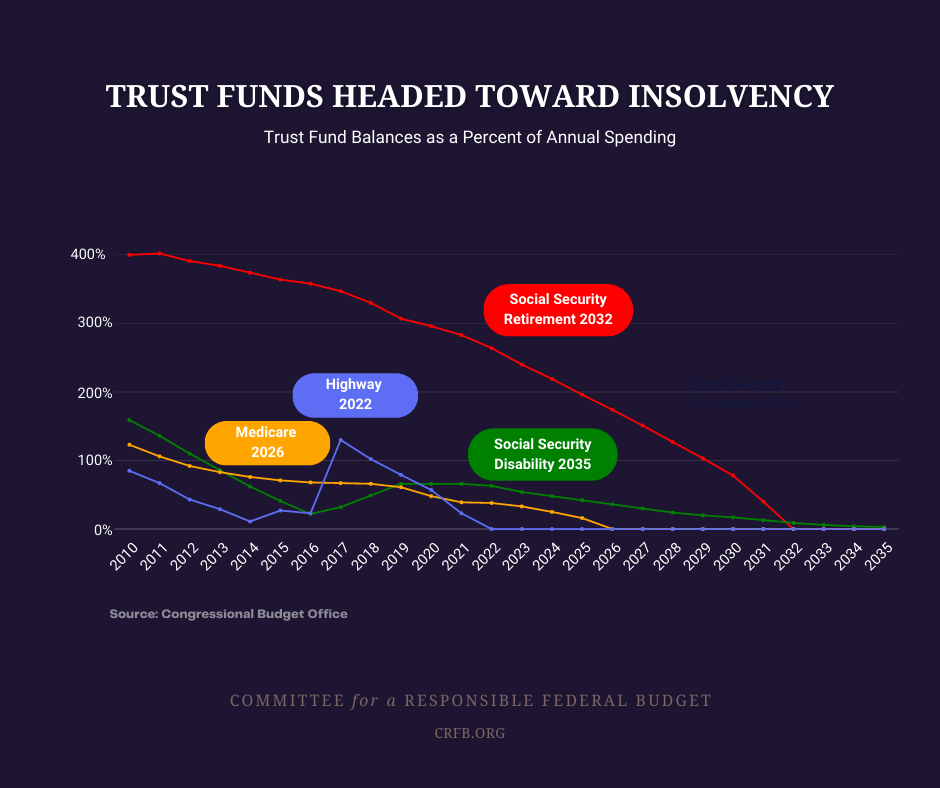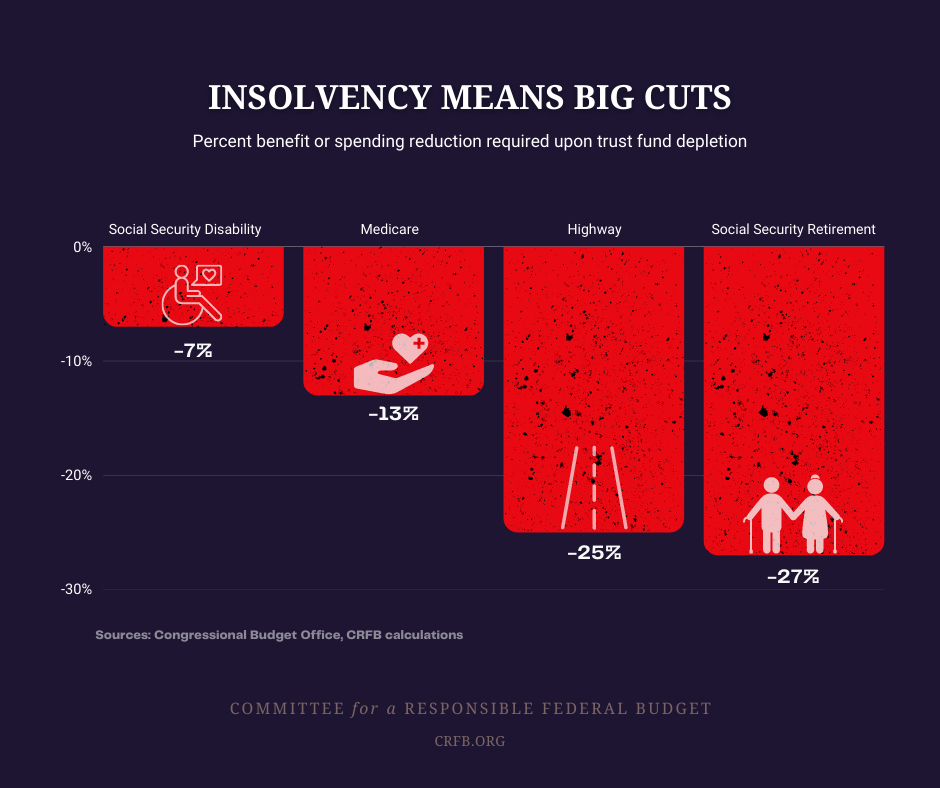TRUST Act has Bipartisan, Bicameral Reintroduction
Last week, a bipartisan and bicameral group of lawmakers reintroduced the TRUST Act, which would establish bipartisan commissions to restore solvency to federal trust funds for Social Security, Medicare, and highway programs. The bipartisan bill was led by Senators Mitt Romney (R-UT), Joe Manchin (D-WV), Todd Young (R-IN), Kyrsten Sinema (D-AZ), Shelley Moore Capito (R-WV), Angus King (I-ME), Rob Portman (R-OH), Mark Warner (D-VA), John Cornyn (R-TX), Mike Rounds (R-SD), Kevin Cramer (R-ND), and Cynthia Lummis (R-WY), as well as Representatives Mike Gallagher (R-WI), Ed Case (D-HI), Jodey Arrington (R-TX), Scott Peters (D-CA), Dusty Johnson (R-SD), and Carolyn Bourdeaux (D-GA).
The Time to Rescue United States Trusts Act, or the TRUST Act (S. 1295/ H.R. 2575), would not directly change these programs. As we have carefully explained, it would facilitate bipartisan conversations on solutions to improve these trust fund programs and extend their solvency.
Specifically, the bill would establish bipartisan, bicameral commissions for trusts funds that spend at least $20 billion per year and are projected to deplete their reserves by 2036. According to the Congressional Budget Office's (CBO) latest estimates, the Highway Trust Fund will be insolvent by 2022 and the Medicare Part A (Hospital Insurance) Trust Fund by 2026. The Social Security Disability Insurance trust fund is estimated to be depleted in 2035, and the Social Security Old-Age and Survivors Insurance (OASI) trust fund will be by 2032 (CBO) or 2034 (Social Security Trustees).

When a trust fund exhausts its reserves, immediate and permanent spending cuts must happen so that spending does not exceed incoming revenue. At the point of insolvency, highway spending would drop by 25 percent, Medicare Hospital Insurance spending by 13 percent, and Social Security retirement benefits by 27 percent for both new and existing beneficiaries.

Under the TRUST Act, each endangered trust fund program would get a “rescue committee” to seek solutions for long-term solvency. Congressional leaders would choose the twelve members of each rescue committee with a preference for leaders of committees and subcommittees with jurisdiction over the relevant programs. The rescue committees would work closely with relevant federal agencies, the Congressional Budget Office, the Government Accountability Office, Congressional leaders, committees of jurisdiction, and other stakeholders to review options and solutions.
Each commission would strive to produce one or more proposals to prevent trust fund depletion, promote long-term solvency, and otherwise improve the programs. These proposals would need bipartisan support including at least two members of each party and a simple majority of all commission members to get fast-track consideration through Congress.
Last Congress, the TRUST Act obtained broad support both on and off the Hill. In addition to bipartisan cosponsors in both the House and Senate, the Blue Dog Coalition endorsed the bill, 30 members of each party signed onto a House letter led by Reps. Peters and Arrington that mentioned the TRUST Act, and it was included in the Problem Solvers Caucus' budget principles. The initiative has also drawn praise from a broad range of the policy community. This year, 71 senators supported a bipartisan amendment from Senators Romney and King to the FY 2021 budget resolution calling for commissions to rescue endangered trust fund programs.
Several important trust funds face insolvency in the next fifteen years. Allowing automatic cuts to occur would mean harsh consequences for the American people. Congress should move quickly to approve collaborative venues like the TRUST Act to promote needed reforms to these important programs.

